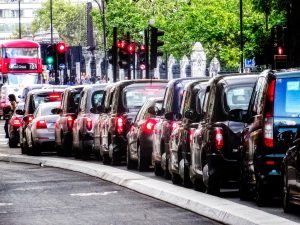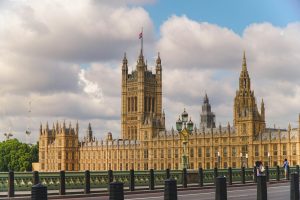With a substantial lead in the polls, Labour are widely expected to win a majority in the general election on 4 July.[1] Furthermore, 132 MPs are standing down.[2] This means that there will be a large number of new MPs when the House of Commons returns in July. Understanding how these candidates are selected may offer an insight into how they will behave as MPs.
Labour’s process for selecting candidates
In the Labour Party, any party member with twelve months of continuous membership who is a member of a trade union can apply to be a constituency’s candidate. A longlist is drawn up centrally by a National Executive Committee-led panel. The selection committee of the local Constituency Labour Party then draws up a shortlist, a hustings is held and local party members vote for the final candidate.[3]
Conservative Party’s process for selecting candidates
In the Conservative Party, applicants must pass the Parliamentary Assessment Board to join the Approved List of candidates. A local selection committee then draws up a longlist from applicants who are on the Approved List, with input from the national selection committee members. The executive council of the local Conservative association draws up a shortlist and local party members vote for the final candidate at a special general meeting.[4]
Snap election considerations
The snap election has necessitated changes to the way candidates are selected. In Labour’s case, a panel of Labour’s National Executive Committee (NEC) members review applications to each seat and choose Labour’s candidate.[5]
The Conservative Party shortened their own process as well, with constituency associations asked to pick from a shortlist of only three candidates.[6] In those seats where candidates were not selected at least 48 hours before registration closed, a shortlist of only one candidate was provided to associations to approve.[7]
Controversies
Both of the two main political parties have been embroiled in controversy over the candidate selection process.
In the Conservatives’ case, local party members and activists have expressed anger at so-called ‘chicken-runners’ and parachute candidates. ‘Chicken runners’ are those MPs who have served for the last five years in marginal seats, mostly in Northern England, and have now been selected in safer seats, mostly in the south east.[8] Particular anger was elicited by the nomination of Richard Holden, the Conservative Party Chair and former MP for North West Durham, who was selected in Basildon and Billericay after his was the only name submitted to the constituency party.[9] In addition, several Government advisors, including Will Tanner, Sunak’s Deputy Chief of Staff, have been parachuted into constituencies to which they have few connections despite arguably being partly to blame for the Conservatives’ poor showing in the polls.[10]
In the Labour Party, there has also been anger at parachute candidates, mostly those loyal to Starmer, while candidates on the left of the party have often been deselected or suspended. For instance, Faiza Shaheen was removed as the Labour candidate for Chingford and Woodford Green after it emerged that she had liked posts on social media site X that arguably downplayed antisemitism allegations.[11] She is now running as an independent. Meanwhile, Labour’s decision to block Diane Abbott’s candidacy for her seat of Hackney North and Stoke Newington caused such controversy that Keir Starmer reversed the decision.[12] On the other hand, Labour figures loyal to Starmer or the centrist wing of the party have been successful in their selections, including NEC member Luke Akehurst and chief executive of the Resolution Foundation and former Ed Miliband advisor Torsten Bell.
BREVIA CONSULTING PROVIDES STRAIGHTFORWARD POLITICAL ADVICE AND SUPPORT TO BUSINESSES AND ORGANISATIONS
Discover how Brevia can help you and your organisation by contacting the Brevia Team on 020 7091 1650
[1] Sky News, General election: Conservatives fear Labour landslide, warning of ‘supermajority’ for Keir Starmer, 12 June 2024, link
[2] House of Commons Library, MPs not standing in the 2024 General Election, 10 June 2024, link
[3] Institute for Government, Conservative and Labour party selection of UK parliamentary candidates, 3 November 2023, link
[4] Ibid
[5] BBC News, What do candidate selections tell us about Starmer’s Labour?, 2 June 2024, link
[6] Politico, Inside the Tory scramble: Rishi Sunak’s snap election sparks chaos for his own party, 31 May 2024, link
[7] The Independent, Chaos as Tory chairman put on a shortlist of one to ensure he gets a seat, 6 June 2024, link
[8] The Telegraph, Five Tory MPs make ‘chicken runs’ to fight safer seats in the south of England, 7 June 2024, link
[9] The Independent, Chaos as Tory chairman put on a shortlist of one to ensure he gets a seat, 6 June 2024, link
[10] East Anglian Daily Times, New candidates hoping to make history in Bury St Edmunds, 11 June 2024, link
[11] The Independent, Faiza Shaheen ‘not endorsed to be Labour candidate after questions over X posts’, 30 May 2024, link
[12] Sky News, Diane Abbott ‘free’ to stand for Labour at general election, Sir Keir Starmer says, 31 May 2024, link



